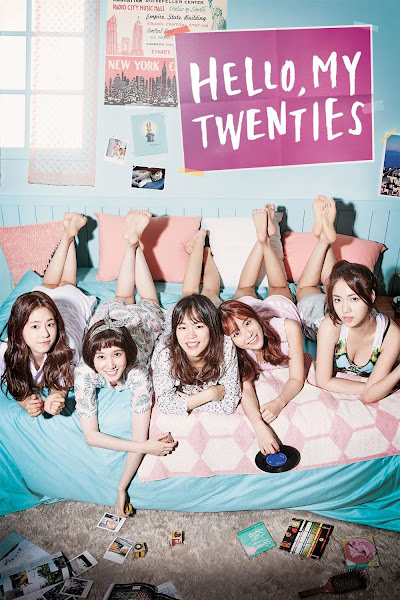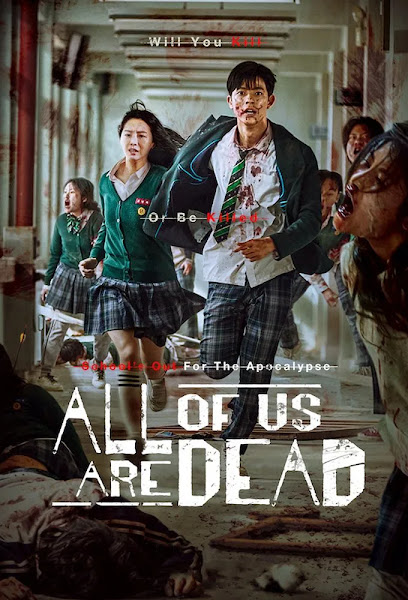'Green Mothers Club' unpacks the emotional contracts of modern motherhood, identity struggles, and elite school politics. A must-watch on Netflix.
Why 'Green Mothers Club' Deserves Your Heart in 2025
Introduction
Have you ever stood in a schoolyard, silently wondering if you were doing enough—for your child, for yourself? Watching Green Mothers' Club felt like stepping into a mirror I didn’t know I needed. It’s not just a drama about parenting; it’s about the hidden contracts mothers sign every day—some written by society, others by their own fears. Five women collide in the elite academic ecosystem of Seoul’s top elementary school, each carrying their own hopes, guilt, and masked insecurities. As rivalries simmer and friendships bend under pressure, we’re asked: at what cost do we chase perfection? This show doesn’t offer easy answers—it just lays the truth bare, and that’s why you need to see it.
Overview
Title: Green Mothers' Club
Year: 2022
Genre: Drama, Family, Society
Main Cast: Kim Gyu-ri, Lee Yo-won, Choo Ja-hyun, Jang Hye-jin, Joo Min-kyung
Episodes: 16
Runtime: Approx. 70 minutes per episode
Streaming Platform: Netflix
Overall Story
When Lee Eun-pyo (Lee Yo-won) transfers her son to a prestigious elementary school in Seoul, she steps into a battleground masked as a parent community. A former art scholar and struggling stay-at-home mom, Eun-pyo wants connection—but what she finds is a hierarchy enforced by unspoken rules, subtle judgments, and sharp-edged smiles. As she stumbles through school politics, she also rediscovers a version of herself she buried for motherhood. Her identity crisis isn’t just personal—it’s systemic, magnified by societal expectations of women to nurture, succeed, and sacrifice.
Byun Chun-hee (Choo Ja-hyun), the queen bee of the PTA, wields power through whispered secrets and curated perfection. She treats parenting like a performance, one where control is currency. Her need to dominate masks deep insecurity—about her marriage, her self-worth, and the fragility of being seen only through her child’s achievements. She’s bound to an emotional contract that success equals value, and that pressure becomes her undoing.
Seo Jin-ha (Kim Gyu-ri), Eun-pyo’s former best friend and current neighbor, reenters her life like a memory too vivid to ignore. Ethereal and graceful, Jin-ha seems to have it all—until past wounds start surfacing. Their fractured friendship becomes a study in resentment, envy, and the price of unresolved trauma. Jin-ha’s mental health quietly unravels, showing how therapy, both sought and denied, can define one's trajectory in a world where appearances matter more than healing.
Kim Young-mi (Jang Hye-jin) tries to mother through dialogue rather than dominance. Her values put her at odds with the competitive culture around her. A former activist now grappling with conformity, she becomes the moral lens of the group, offering brief respites of clarity. But even she isn’t immune to guilt—torn between raising a free spirit and protecting her child from a world that punishes deviation. Through her, the show explores what it means to parent with conscience in a system designed for compliance.
Park Yun-joo (Joo Min-kyung), Eun-pyo’s cousin, adds chaos and rawness to the mix. Unfiltered and instinctive, Yun-joo stumbles through the expectations of elite parenting like a bull in a glass house. Her vulnerability feels reckless at times, but it exposes the absurdity of the norms others blindly obey. She forces the group to confront their façades, simply by refusing to wear one. Her presence reveals how social contracts often privilege the performative over the authentic.
As secrets unravel—affairs, betrayals, past regrets—the “Green Mothers' Club” becomes less a support group and more a pressure cooker. Marriages fray, children suffer under expectations, and friendships bloom only to break. The show holds a mirror to society’s silent obsession with perfection and status. But more importantly, it asks whether modern motherhood is built on empathy—or endurance. In its most powerful moments, Green Mothers' Club becomes less about parenting, and more about remembering the women who mother from the shadows of who they used to be.
Highlight Moments / Key Episodes
Episode 1: Eun-pyo walks into her first PTA meeting, unaware of the unspoken power lines already drawn. A whispered exchange between Chun-hee and another mom sets the tone: parenting here is warfare dressed as cooperation.
Episode 3: A heated confrontation erupts at the school gate after a cheating rumor spreads. Chun-hee’s calm explodes into desperation, revealing how brittle control becomes when trust cracks. The line between parent and competitor is obliterated.
Episode 6: A flashback reveals Eun-pyo and Jin-ha’s past friendship—and the betrayal that ended it. In the present, their children’s rivalry echoes their unresolved pain, turning a simple playdate into an emotional landmine.
Episode 9: Young-mi’s son has a meltdown at a school recital. Instead of disciplining him, she holds him close—ignoring glares from other parents. Her choice sparks debate, online and off, about discipline versus empathy.
Episode 12: Yun-joo drunkenly interrupts a lecture on elite education, demanding to know if "raising perfect kids" is worth losing your soul. Her outburst becomes viral among moms online, marking a shift in the community’s tone.
Memorable Lines
"We didn’t choose this war—but once you enter, retreat feels like failure." – Lee Eun-pyo, Episode 1
This line is spoken during Eun-pyo’s first turbulent PTA experience, as she realizes that parenting in this school isn’t just about education—it’s a social battleground. The metaphor of “war” speaks volumes about the emotional toll of trying to fit in, and the guilt that follows when one dares to step away from competitive parenting.
"There’s no such thing as a perfect child. Only parents desperate to believe they created one." – Byun Chun-hee, Episode 3
Chun-hee utters this in a moment of rare vulnerability, after a rumor about her daughter’s test scores causes a scandal. The line exposes the fear that drives her need for control—not ambition, but the deep-seated terror of being judged as inadequate. It's a heartbreaking glimpse beneath her polished façade.
"Friendship doesn’t survive silence—it dies in it." – Seo Jin-ha, Episode 6
Jin-ha confronts Eun-pyo about their unresolved past, reflecting on how emotional distance and unspoken resentment corroded what once was the most meaningful bond of her youth. The line carries the weight of regret, especially for women whose friendships become casualties of rivalry and time.
"I’d rather raise a kind child than a perfect resume." – Kim Young-mi, Episode 9
Young-mi defends her parenting philosophy after being criticized for not enrolling her child in more extracurriculars. In a world obsessed with accolades, this line feels revolutionary—a quiet rebellion that re-centers parenting around empathy instead of performance.
"I’m not broken—I just refuse to bend the way you do." – Park Yun-joo, Episode 12
Yun-joo delivers this line after being accused of embarrassing the community. It’s a defiant declaration of self-worth, spoken by a mother who may lack polish but possesses unshakable sincerity. The line resonates as a statement on authenticity versus conformity.
Why It’s Special
Green Mothers' Club isn’t just a drama—it’s a profound excavation of modern motherhood layered with guilt, ambition, and silent despair. What sets it apart is its commitment to portraying women not as archetypes, but as deeply flawed and fiercely human. The series doesn’t rush; it simmers. Each character arc feels like peeling back emotional layers we rarely dare to name aloud.
The acting is unflinchingly honest. Lee Yo-won gives Lee Eun-pyo a blend of intellectual fire and wounded uncertainty, making her internal conflict over motherhood and selfhood heartbreakingly real. Choo Ja-hyun, as Byun Chun-hee, dazzles with restraint—her performance is like watching porcelain crack slowly under pressure. Together, their chemistry fuels the drama’s most volatile and intimate moments.
Director Ra Ha-na’s restrained aesthetic lends the series an almost voyeuristic intimacy. The camera lingers on glances, unfinished sentences, and unspoken slights—moments that often say more than dialogue ever could. These choices build emotional claustrophobia, mirroring the way social roles can suffocate personal truths.
What also makes the show stand out is how it critiques the institutionalization of parenting. From therapy worksheets handed out like punishment to parents, to the unspoken emotional contracts of sacrifice women must endure, it interrogates the very frameworks that normalize emotional suppression in the name of "good parenting."
Thematically, it tackles identity with piercing clarity. Each woman faces a reckoning—forced to confront who they were before becoming mothers. Jin-ha’s descent into instability becomes a mirror for viewers who’ve buried trauma beneath performance. Meanwhile, Young-mi’s moral dilemmas remind us that therapy isn’t just for healing children—it’s for healing generations.
The writing resists melodrama, opting instead for a grounded realism where a single text message or playground whisper can shift the social tide. It dares to say that trauma doesn’t always explode—it seeps, reshapes, and haunts. That subtlety is where the show’s brilliance lies.
Above all, Green Mothers' Club challenges its audience to examine not just how we mother, but why. Is it love, obligation, or the fear of being left behind? It refuses to reduce motherhood to virtue—it shows it as a negotiation, a performance, a sacrifice, and sometimes, an escape.
Popularity & Reception
Upon its release, Green Mothers' Club sparked heated conversations across Korean and international online communities. Viewers praised its portrayal of raw female dynamics, with many calling it a "K-drama Big Little Lies" but rooted more deeply in cultural nuance. On Netflix, it ranked within the Top 10 dramas in Korea and parts of Southeast Asia.
Critics lauded the show for subverting typical "mom-vs-mom" tropes. The Korea Times noted its “willingness to sit with discomfort,” and The Guardian featured it in a write-up on the global rise of motherhood-centered dramas. International fans on Reddit and Twitter dissected character arcs, particularly Eun-pyo and Jin-ha’s fractured friendship, calling it “one of the most complex female rivalries ever written.”
Lee Yo-won and Choo Ja-hyun received praise for portraying the emotional labor and resentment that often go unspoken in domestic spaces. Several bloggers commended Jang Hye-jin’s portrayal of Young-mi for breaking stereotypes of the “ideal mother” in Korean dramas. Social media was flooded with fan edits, meme parodies of PTA battles, and heartfelt posts from viewers who saw their own struggles reflected onscreen.
Mental health communities and parenting forums referenced scenes from the show in discussions about emotional burnout and parental identity loss. One therapist even recommended the show as “required viewing” for parents attending her workshops—testimony to the show's cultural and psychological resonance.
Cast & Fun Facts
Lee Yo-won (Lee Eun-pyo) is no stranger to complex female roles, having led Queen Seondeok and Avengers Social Club. Here, she strips down all glamor to play a mother drifting between academia and insecurity. In interviews, she shared how her own parenting experiences informed her performance, especially Eun-pyo’s inner conflict between self-preservation and self-erasure.
Behind the scenes, Lee Yo-won reportedly kept a private diary as Eun-pyo during filming to stay emotionally connected. Director Ra Ha-na stated, “Lee didn’t just act—she lived the tension in every scene.”
Choo Ja-hyun (Byun Chun-hee) stunned viewers with her cold elegance and slow unraveling. Known for her work in Chinese dramas and My Unfamiliar Family, she prepared by studying body language of powerful women in politics and CEOs. Her ability to convey control even while unraveling emotionally gave Chun-hee a chilling magnetism.
Kim Gyu-ri (Seo Jin-ha), who returned to TV after a long hiatus, brought haunting vulnerability to the role. Fans praised her portrayal of a woman silently drowning under expectations. In a behind-the-scenes clip, Kim revealed that she created a playlist of melancholic jazz and ambient music to maintain Jin-ha’s fragile emotional state.
Jang Hye-jin (Kim Young-mi) shone with grounded warmth. Best known internationally for her role in Parasite, she brought authenticity and quiet rebellion to the show. Crew members recalled how her off-camera laughter provided balance to a very emotionally intense set.
Joo Min-kyung (Park Yun-joo) added levity and unpredictability. She improvised many of Yun-joo’s most chaotic lines, including a viral scene where she blurts out, “Do we get a trophy if our kids cry less than three times?”—a fan-favorite moment for its comedic honesty.
Director Ra Ha-na, previously a script editor, made her directorial debut here. She worked closely with a female-dominated writing team to capture the emotional terrain of motherhood with precision. Their process included real-life interviews with parents and psychologists, infusing the script with lived truths.
The show was filmed on-location in various Seoul neighborhoods, using real apartment complexes and school campuses to heighten authenticity. Several props—like the children's award boards—were created using artwork from actual elementary students.
Conclusion / Warm Reminders
Green Mothers' Club isn’t your average parenting drama. It’s an unflinching exploration of the emotional toll modern mothers bear, both publicly and in solitude. Its slow-burn intensity, layered performances, and psychological realism make it one of the most honest K-dramas in recent memory.
For anyone who has ever questioned who they are beyond the role they’ve been assigned—whether as a parent, a partner, or a friend—this drama will stir something deep. Its treatment of emotional therapy, social contracts, and identity loss is not just narrative—it’s necessary. It reminds us that the most difficult roles in life are the ones without scripts.















Comments
Post a Comment